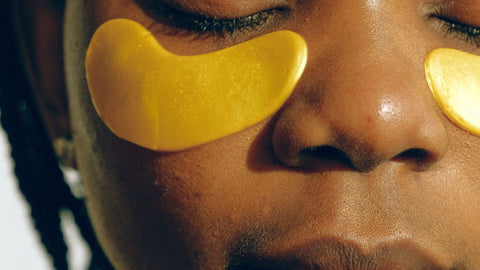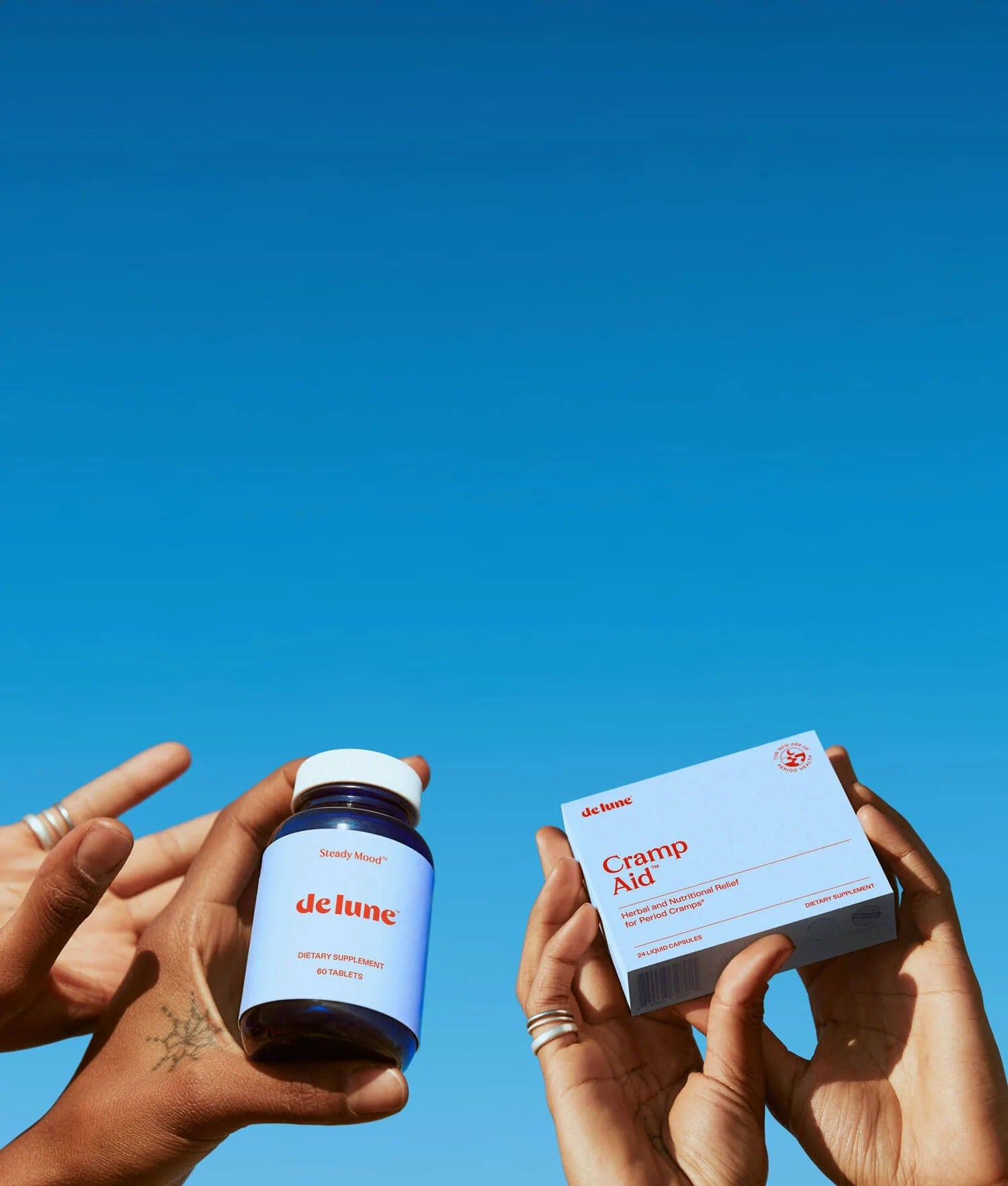Caffeine is a period cramp offender, though not a well-known one. When I learned caffeine can make period cramps worse, this emoji 😱 came to mind, followed by an ‘aha!’ moment. I had an answer for why my cramps were randomly so bad that month. It wasn’t random; it was the triple shot latte I drank the day before I started bleeding.
Generally speaking, I'm a fan of caffeine. It plays an important role in my life and workflow, and I wouldn't want to remove it from my routine completely.
However, menstrual health research has taught me to honor my hormonal ebbs and flows, and adjust how I care for myself accordingly throughout the month.
Adjusting how you use caffeine before and during your period is a small change you can make to improve your menstrual health.
This article explains how caffeine works to worsen cramps, how to sync your caffeine intake to your cycle, and what to use instead of caffeine to relieve fatigue before and during your period.
Caffeine’s role in worsening period cramps
To understand how caffeine makes period cramps worse, it’s helpful to understand what causes period cramps to begin with.
Period cramps happen when inflammatory compounds called prostaglandins build up in the uterus in response to hormonal fluxes at the start of menstruation. The uterus is a muscular organ, and prostaglandins make the uterine muscles contract so they can shed the uterine lining as a period.
However, the uterine muscles are so powerful and can contract so tightly, they can pinch off the blood vessels that supply the uterus with oxygen. Muscles need oxygen to function properly. When oxygen is in short supply, those muscles hurt. That pain is a period cramp.

Caffeine enters the period pain equation near the end of the cascade. Caffeine is a vasoconstrictor, meaning it narrows blood vessels—including the ones that reach your uterus—so less blood and oxygen can flow through them. As a result, caffeine can further prevent oxygen from reaching an already oxygen-starved uterus, leading to period cramps that are more intense and happen more frequently.
Caffeine’s role in worsening cramps is supported by three large studies, involving a total of 1,088 menstruating people, that found a significant association between caffeine intake and more intense menstrual pain. Three additional studies reported a correlation between coffee and period pain. Some, but not all, studies looking at the relationship between caffeinated tea and period pain found an association. For reference, there’s about 95mg of caffeine in a cup of coffee, and about 27mg of caffeine in a cup of caffeinated tea.
When to reduce caffeine intake to reduce period cramps
Because of caffeine’s role in worsening period cramps, we recommend reducing or avoiding caffeine in the 4-6 days leading up to the start of your period, and continuing to reduce or avoid caffeine during your period until you’re no longer experiencing cramps.
The prostaglandins that begin the period pain cascade form in response to the drop in the hormone progesterone that happens in the 4-6 days leading up to the start of your period.
Levels of uterine prostaglandins are typically at their highest on the first day of menstruation, and it takes up to 10 hours for caffeine to be completely cleared from the body. The key is to reduce or avoid caffeine while uterine prostaglandins begin to accumulate in the uterus and reach their peak.
There may be some other good reasons to ease up on caffeine before and during your period, in addition to preventing period cramps:
-
Caffeine is a diuretic, meaning it can dehydrate you if most of the fluids you're drinking are caffeinated. Dehydration will leave you feeling exhausted and weak, which can compound pre-existing period symptoms. Migraines and muscle pain are also common while menstruating, and while water won't cure either condition, dehydration certainly won't help.
-
Caffeine can overstimulate the digestive tract and irritate the bowels, which may worsen bloating and make period poops even more problematic.
-
Caffeine can disrupt sleep if used too late in the day. Circadian rhythm—or our body’s sleep/wake cycle—regulates the secretion of various hormones. Because the menstrual cycle is a hormone-dependent process, dysregulated hormones can mean more period problems. For most people, caffeine after 2pm risks disrupting circadian rhythm.
-
Caffeine is a mentally stimulating drug that, when over-consumed, may exacerbate PMS-related edginess before and during your period.
-
One study found high caffeine intake was linked to heavier menstrual bleeding.
-
Caffeine possibly worsens PMS symptoms. The American College of Obstetricians and Gynecologists (ACOG) currently recommends that those who struggle with PMS avoid caffeine, and some studies have linked caffeine intake to worse PMS symptoms. However, a larger, more recent study found no association between caffeine intake and PMS and challenges the ACOG’s recommendation.
Is it worth reducing caffeine all month long for period health?
No need to reduce caffeine all month long to relieve period cramps. In fact, there may even be some benefit to leaving healthy sources of caffeine in your routine during your follicular and ovulatory phases (i.e. the first 14-18 days after your period ends).
Coffee, black tea, and green tea contain special plant compounds called polyphenols that may reduce inflammation. Inflammation has been linked to various period problems, so including anti-inflammatory foods and beverages in your diet can improve overall menstrual health.
If you’re already a caffeine user, we recommend using coffee or caffeinated tea to manage fatigue after your period, and looking to caffeine alternatives before and during your period.

How to relieve fatigue during your period without caffeine
Caffeine isn’t the only natural substance that boosts energy. Adaptogens are a class of herbs that help the body cope with stress and fatigue. They’ve been used for thousands of years in cultures around the world to enhance energy, alertness, and concentration.
Studies show adaptogens have long-term benefits by helping improve fatigue tolerance over time, as well as short-term benefits by elevating attention and focus almost immediately after use. All without caffeine and its blood vessel-narrowing effects.
Energy Flow is a high-powered blend of three organic adaptogenic herbs: fatigue-fighting ginkgo biloba, mental-sharpening schisandra, and attention-boosting eleuthero. With stimulating peppermint and blood orange flavors, it’s the caffeine-free way to instantly enhance energy before and during your period.*

Our take on caffeine and period health
Evidence suggests caffeine worsens period cramps when used before and during your period.
Everyone responds to caffeine slightly differently, and some sources of caffeine have unique health benefits. However, if you’re a habitual caffeine user who also struggles with period pain, it's worth using caffeine alternatives like adaptogens to manage fatigue before and during your period—especially on and around the first day you start bleeding.







